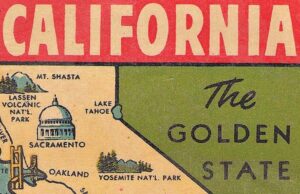 By Eden E. Anderson, Gerald L. Maatman, Jr., and Shireen Wetmore
By Eden E. Anderson, Gerald L. Maatman, Jr., and Shireen Wetmore
Duane Morris Takeaways: The California Supreme Court issued its opinion in Turrieta, et al. v. Lyft, Inc., Case No. S271721 on August 1, 2024. It held that, when an employer is facing multiple overlapping PAGA actions and settles one such action, the plaintiffs in the other PAGA actions are not permitted to intervene in the settled action, to require a trial court to receive and to consider their objections to the settlement, or to seek to vacate the ensuing judgment. The Turrieta decision has significant ramifications for employers facing a multiplicity of PAGA actions and ensures that an employer can settle one such action without substantial interference from other PAGA plaintiffs and their attorneys.
Case Background
In rapid succession between May to July 2018, three Lyft drivers, Olson, Seifu, and Turrieta, each filed separate PAGA actions alleging improper classification as independent contractors. In 2019, Turrieta reached a $15 million settlement with Lyft, which included a $5 million payment to her counsel. As part of the settlement, Turrieta amended her complaint to allege all PAGA claims that could have been brought against Lyft. She then filed a motion for court approval of the settlement.
The LWDA did not object to the settlement. However, when Olson and Seifu and their counsel got wind of the settlement, they moved to intervene and objected. The trial court denied the intervention requests, approved the settlement, and then denied motions by Olson and Seifu to vacate the judgment in the Turrieta PAGA action.
The Court of Appeal affirmed. It held that, as non-parties, Olson and Seifu lacked standing to move to vacate the judgment as only an “aggrieved party” can appeal from a judgment. On the intervention issue, the Court of Appeal explained that the real party in interest in a PAGA action is the State and thus neither Olson nor Seifu had a direct interest in the case.
The California Supreme Court then granted review to consider whether a PAGA plaintiff has the right to intervene, or object to, or move to vacate a judgment in a related PAGA action that purports to settle the claims that plaintiff has brought on behalf of the state.
The California Supreme Court’s Decision
The California Supreme Court agreed with the Court of Appeal and the trial court. Justice Jenkins authored the decision, with Chief Justices Guerrero and Justices Corrigan, Kruger, and Groban concurring.
The California Supreme Court first addressed whether a PAGA plaintiff can intervene in another PAGA action that settles. The Supreme Court noted there was nothing in the PAGA statute expressly permitting intervention, and that PAGA’s purpose — to penalize employers who violate California wage and hour laws and to deter such violations — was well served by the settling PAGA plaintiff. Thus, having other PAGA plaintiffs involved in a settled PAGA claim is not necessary to effectuate PAGA’s purpose. The Supreme Court also found significant the fact that the PAGA only requires that notice of settlement be provided to the LWDA and approved by the trial court, necessarily implying that other litigants need not be informed of the settlement or involved.
The Supreme Court also noted that permitting intervention would result in a PAGA claim involving multiple sets of lawyers all purporting to advocate for the same client and fighting over who could control the litigation and settlement process, and who could recover their attorneys’ fees. Not only does the PAGA not itself address such complexities, but also such a messy situation would thwart the pursuit of PAGA claims, contrary to the statute’s purpose.
The Supreme Court highlighted that PAGA plaintiffs nonetheless have a variety of options to pursue other than intervention. They remain free to seek consolidation or coordination of PAGA cases to facilitate resolution of the claims in a single proceeding. Or a PAGA plaintiff can offer arguments and evidence to a trial court assessing a PAGA settlement, or can raise his/her concerns with the LWDA so as to spur LWDA action.
The Supreme Court then held that the same reasoning for its conclusion against a right to intervention also meant that a PAGA plaintiff has no right to move to vacate the judgment obtained by another PAGA plaintiff in a separate PAGA action, or to require that any objections he/she files to another plaintiff’s settlement be ruled upon.
In a concurring opinion, Justice Kruger emphasized that there is nothing preventing a private plaintiff (rather than a PAGA plaintiff) from intervening to protect their own personal interests as an allegedly aggrieved employee, and she emphasized the trial court’s duty to carefully examine PAGA settlements.
Justice Liu penned a lengthy dissent. Seemingly mistrustful of trial courts’ ability to gauge the fairness of a PAGA settlement, Justice Liu expressed his view that the majority’s opinion creates a “substantial risk of auctioning settlement of PAGA claims to the lowest bidder and insulting those settlements from appellate review.” See Dissent at 2 Justice Liu encouraged the California Legislature to take action to amend the PAGA to expressly confer the rights the majority found lacking.
Implications For Employers
The Turrieta decision has significant ramifications for employers facing a multiplicity of PAGA actions.
By settling with one plaintiff who then amends the complaint to cover the claims at issue in the other PAGA actions, the employer can pull the rug out from underneath the other plaintiffs and their counsel. As we reported last month, recent amendments to the PAGA now require that a PAGA plaintiff have suffered the same alleged injury as the other allegedly aggrieved employees he or she is, as the State’s proxy, representing. That amendment diminishes the likelihood of employers continuing to face multiple overlapping PAGA claims. But, to the extent an employer is facing a multiplicity of overlapping PAGA actions, the Turrieta decision makes clear that settlement of one such action can be accomplished without substantial interference from other PAGA plaintiffs.
